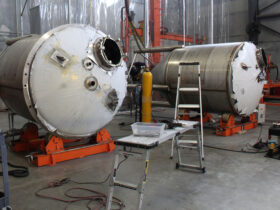Have you ever struggled with weight loss? Are you tired of trying countless diets and exercise routines with no success? If so, best bariatric surgery may be the answer you’ve been looking for. In this article, we will dive into the world of bariatric surgery techniques and explore how they can help you achieve long-term weight loss success.
What is Bariatric Surgery?
Bariatric surgery, also known as weight loss surgery, is a surgical procedure that helps individuals with obesity lose weight by making changes to their digestive system. It works by restricting the amount of food the stomach can hold or by altering the way the body absorbs nutrients. This leads to reduced calorie intake and improved weight loss.
The Different Types of Bariatric Surgery
- Gastric Bypass Surgery: This is one of the most common and effective bariatric surgery techniques. It involves creating a small pouch at the top of the stomach and connecting it directly to the small intestine. This bypasses a large portion of the stomach and the first part of the small intestine, resulting in reduced calorie absorption.
- Sleeve Gastrectomy: In this procedure, a large portion of the stomach is removed, leaving behind a smaller sleeve-shaped stomach. This reduces the amount of food the stomach can hold and also affects hunger hormones, leading to decreased appetite.
- Gastric Banding: This technique involves placing an adjustable band around the upper part of the stomach. The band can be tightened or loosened to control the amount of food the stomach can hold. It is a reversible procedure and allows for gradual weight loss.
- Biliopancreatic Diversion with Duodenal Switch: This is a more complex procedure that involves removing a large portion of the stomach and rerouting the small intestine. It leads to significant weight loss and also affects the absorption of fat and nutrients.
Benefits of Bariatric Surgery
Bariatric surgery offers several benefits beyond weight loss:
- Improvement in obesity-related health conditions such as diabetes, high blood pressure, and sleep apnea.
- Increased energy levels and improved quality of life.
- Enhanced mobility and ability to engage in physical activities.
- Long-term weight loss maintenance with proper lifestyle changes.
Risks and Considerations
While bariatric surgery can be life-changing, it is important to consider the potential risks and complications:
- Surgical risks such as infection, bleeding, and blood clots.
- Nutritional deficiencies due to reduced nutrient absorption.
- Changes in digestion and bowel habits.
- Psychological and emotional adjustments to the new lifestyle.
Conclusion
Bariatric surgery can be a life-saving option for individuals struggling with obesity and weight-related health conditions. By exploring the different bariatric surgery techniques, you can find the path that suits your needs and goals. Remember, weight loss surgery is not a quick fix but a tool to aid you in your journey towards a healthier and happier life.






